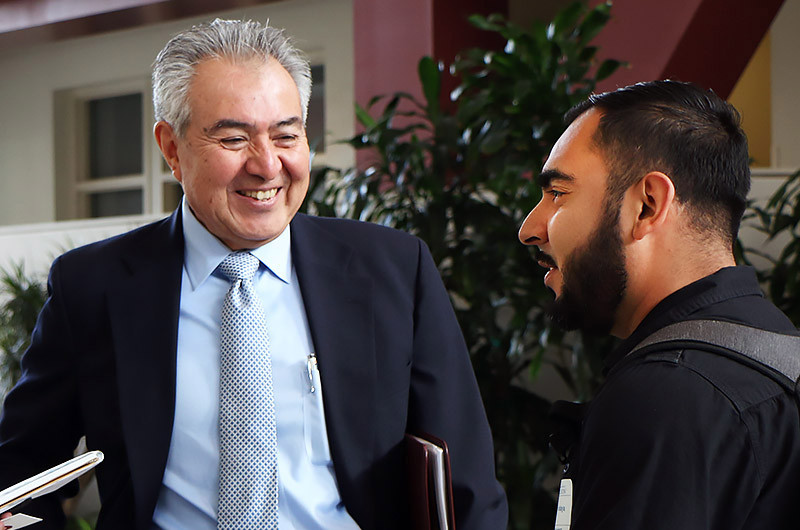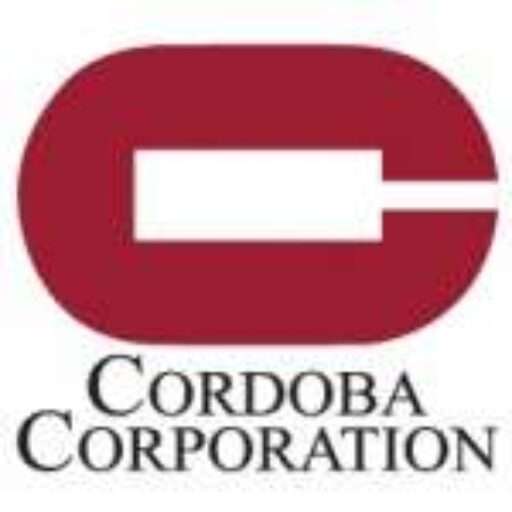Latino STEM students get advice from Cal State Fullerton engineering alum
From the Orange County Register, January 24, 2018 – By Reporter Wendy Fawthrop

When Henry Martinez talks to Latino college students about STEM careers, he knows what heights they are capable of reaching.
He also knows what might hold them back from that climb.
And the Cal State Fullerton alum tells them, hoping to nudge them out of a comfort zone often made more comfortable by cultural traditions.
“I am where I am because of other people who took an interest in me. How can I help someone else who is at the same place that I was?” Martinez asked in a recent interview.
He had recently given a keynote address to a STEM summit at Cal State Fullerton, which offered professional development workshops geared to Latino science, technology, engineering and mathematics majors.
Martinez, 65, had shared with them his life journey from San Luis Potosi in central Mexico to executive positions at the Tennessee Valley Authority, the Los Angeles Department of Water and Power and Southern California Edison, where he served as vice president of power production. He now serves as senior vice president for water infrastructure at Cordoba Corp. in Santa Ana.
He credits his undergraduate education at Cal State Fullerton for laying the groundwork for his professional career. Besides speaking at the summit, he also has championed Cordoba’s hiring of interns, including one from Cal State Fullerton.
“Part of the effort was to reach out and provide students with opportunities to give work experience to build up their resume,” said Martinez, who received his bachelor’s in electrical engineering in 1975 and completed the executive program at Darden School of Business at the University of Virginia. “I hope it works out that we get to employ them, but even if they’re not hired by us, their resume is richer.”
A lot of the attendees at the STEM summit could relate to Martinez’s background.
After immigrating with his parents when he was 10, Martinez grew up in Bellflower. In junior high, the Mercury and Apollo programs got him interested in science – in particular, the physics behind how rockets work. In high school, he took prep classes for college, relying on high school counselors and friends for advice as the first in his family to attend college. He opted for Cal State Fullerton since it was a short commute and had affordable tuition that didn’t put any more financial pressure on his parents, who had five other children
Martinez entered CSUF as an Educational Opportunity Program student, which provided him access to a counselor who knew his way around the university. The counselor made sure his charges took the right classes, kept track of them and put them in touch with summer internships with local companies.
Martinez graduated with four job offers — three of them from aerospace companies. But in the mid-’70s he was already noticing the ups and downs of employment in that industry and so took a lower-paying job farther from home with Southern California Edison because it was more sustainable. Over 16 years, he progressed into management, was recruited by the Tennessee Valley Authority, then went back to Los Angeles to work for the Department of Water and Power. After 10 years there, he returned to Edison. Martinez, who lives in Anaheim Hills, retired in 2015 but got restless after a year and so joined a friend who runs Cordoba, an infrastructure development firm.
After returning to California, Martinez got involved with Cal State Fullerton, serving on an advisory board for the Engineering & Computer Science College and on the university’s philanthropic board.
At the November STEM summit, he encouraged students to stick with their pursuit of technical degrees, even though the track is not easy. He also stressed that “soft skills” — such as social, presentation, and oral and written communication skills — are just as important in today’s job market.
“It’s great to know your skills on the technology side but, at the end of the day, you have to explain that to somebody,” he told the attendees. Such things as grammar, punctuation and sentence structure aren’t emphasized in STEM curricula, he said, but should be.
Likewise, understanding the financial aspects of a project – the budget and how balance sheets work – is important in STEM fields, he said.
“Even if you are an engineer, you need to know how the client will determine the success of a project,” he said. “When I came into the workforce, that’s one thing I had to learn.”
While that advice is good for all STEM majors, Martinez tailored some of his comments to young Latinos in particular. Some of the demands of today’s working world are at odds with some entrenched aspects of Latino culture, he said.
For example, many workplaces today are collaborative, he noted; the old model of individuals toiling away alone in cubicles is outdated. Workers need to feel comfortable in that team environment, especially speaking up.
“In the Latino community, we seem to be somewhat reserved; we don’t want to bring attention to ourselves,” Martinez said. “The tendency is to be in the background.” But that can be misperceived by many people, he added.
Martinez said he had to learn to overcome that tendency. “You almost have to go out of your way not to leave the wrong impression to your bosses that you are aloof.”
Latinos also tend to stay close to home, he said, but the opportunities aren’t always here. When he had to pick up and move to Tennessee, it was a challenge, he said, taking him out of his comfort zone. He had to rebuild a network in a different part of the country with different principles and values.
“At times, you don’t select the opportunities; they select you,” Martinez said. Have the courage to deal with the changes because they spur growth. “Those changes make your confidence level go up, make you confident you can perform, that you know what you’re doing and people value your knowledge.”
For one of the first decisions he had to make in Tennessee, Martinez said, he went to his boss, looking for feedback. He was told: “We hired you for your expertise; it’s your call.”
“Sometimes as Latinos, we don’t feel confident in our ideas,” he said. In Latin countries, there are Latinos in leadership roles in all fields, from business and politics to the arts, he explained. But immigrants in the United States tend to come from the working class, without the same exposure to education or financial resources, and don’t have the same role models.
Martinez’s father, who worked as a welder and mechanic, including on Saturdays, supported and encouraged his children toward a better career. Two of Martinez’s sisters earned master’s degrees in education and work in Whittier and Los Angeles school districts.
Martinez likewise wants to give young Latinos a more “wide-open view” of their community and a step toward a stable financial future. He valued the experience he received working summers while in college in fields related to his major. When he joined Cordoba, he pitched a coordinated internship program to CEO George Pla.
“I said we have a great university right down the street,” Martinez said. Last summer, the company hired six interns, including Cesar Andaya, a Cal State Fullerton civil engineering major and first-generation college student. Andaya also attended the November STEM summit on campus.
“It’s important to take advantage of developing professional skills to make the transition from student to career. I want to be as prepared as possible for the workforce,” said Andaya, who plans to graduate in May.
Besides their technical training, interns at Cordoba also were required to attend city council meetings to expose them to the issues companies must deal with and how they present projects for approval or funding.
“It’s more civic-minded,” Martinez said, geared toward introducing the students to opportunities they will have to participate in their communities.
It’s a small way of contributing to the students’ future, he said, adding, “Hopefully some of it will stick.”
This article can be reviewed online at: https://www.ocregister.com/2018/01/24/latino-stem-students-get-advice-from-cal-state-fullerton-engineering-alum/

